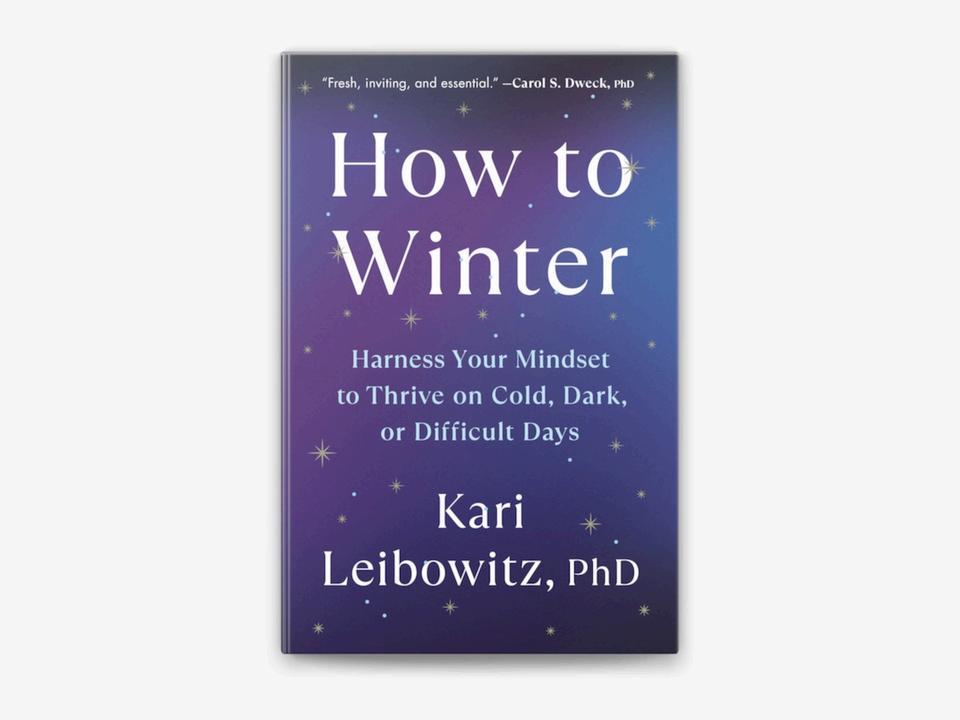
1 minute read
Reading for Well-Being
by Joanna Pozzulo, Ph.D.
The shorter days and cooler weather signal that winter is approaching. Although it may not be everyone’s favourite season, there are many good reasons to embrace winter. Personally, it signals pumpkin spice lattes, all things gingerbread, and digging into my “to-read list.” You can imagine my excitement when I stumbled across the book How to Winter: Harness Your Mindset to Thrive on Cold, Dark, or Difficult Days by Kari Leibowitz, Ph.D. (2024). Leibowitz explores the connection between “seasonal variation” and well-being in this book. And for anyone who’s not a fan of winter, Leibowitz might have you rethinking your view on this colder, darker season.

Leibowitz divides happy wintering into three broad categories: 1) appreciating winter, 2) making it special, and 3) getting outside. Book chapters include the research and strategies to help you enjoy the season. An added benefit to the book is the clearly articulated end-of-chapter techniques for ease of implementation. One of my favourite strategies was to list five specific things to look forward to as winter approaches. This book is a good read for fans of winter and non-fans alike.
I also have taken advantage of the cooler weather to read, The Mindful Body: Thinking our way to chronic health by Ellen J. Langer (2023). Having researched mindfulness since the 1970s, Ellen Langer has been called the “mother of mindfulness.” Her first book on the topic, Mindfulness, celebrated its 25th anniversary in 2014. Langer defines mindfulness as “the simple process of actively noticing things, no meditation required.” She also states that mindfulness relates to the body. According to Langer, not only is the mind and body connected, they are a single system that works in concert.

Langer provides several examples of how becoming more mindful allows for alternative explanations and possibilities that can then impact our behaviour and outcomes. She notes that we can choose how we think about situations. Changing how we think can change how our body reacts. Mindset matters. Langer suggests adopting an attitude of “mindful optimism.” And how do you do that? Come up with a plan, implement it, and then live in the present.
Langer demonstrates that when we challenge preconceived notions, outcomes can change for the better, including those around health and aging. Langer’s discussion of aging was intriguing. She challenges us to reflect on our views on getting older. As we age, we can maintain meaningfulness and vitality. Be “mindful” not to give in to stereotypes. Perhaps improved well-being is just a thought away.










